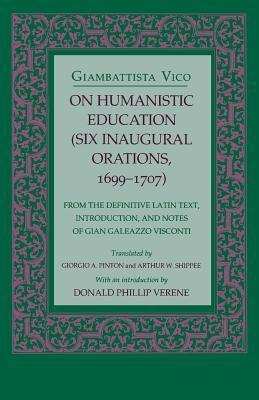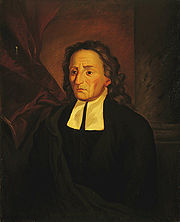
1993
First Published
3.75
Average Rating
200
Number of Pages
Vico's earliest extant scholarly works, the six orations on humanistic education, offer the first statement of ideas that Vico would continue to refine throughout his life. Delivered between 1699 and 1707 to usher in the new academic year at the University of Naples, the orations are brought together here for the first time in English in an authoritative translation based on Gian Galeazzo Visconti's 1982 Latin/Italian edition. In the lectures, Vico draws liberally on the classical philosophical and legal traditions as he explores the relationship between the Greek dictum "Know thyself" and liberal education. As he sets forth the values and goals of a humanist curriculum, Vico reveals the beginnings of the anti-Cartesian position he will pursue in On the Study Methods of Our Time (1709). Also found in the orations are glimpses of Vico's later views on the theory of interpretation and on the nature of language, imagination, and human creativity, along with many themes that were to be fully developed in his magnum opus, the New Science (1744). On Humanistic Education joins a number of translations of Vico's works available in paperback from Cornell― On the Study Methods of Our Time, On the Most Ancient Wisdom of the Italians, the New Science, and The Autobiography of Giambattista Vico . It will be welcomed by Vichians and their students, intellectual historians, and others in the fields of philosophy, literary theory, history and methods of education, classics, and rhetoric.
Avg Rating
3.75
Number of Ratings
16
5 STARS
31%
4 STARS
31%
3 STARS
19%
2 STARS
19%
1 STARS
0%
goodreads
Author

Giambattista Vico
Author · 6 books
Giovanni Battista (Giambattista) Vico or Vigo was an Italian political philosopher, rhetorician, historian, and jurist. A critic of modern rationalism and apologist of classical antiquity, Vico's magnum opus is titled "Principles/Origins of [re]New[ed] Science about the Common Nature of Nations" (Principi di Scienza Nuova d'intorno alla Comune Natura delle Nazioni). The work is explicitly presented as a "Science of reasoning" (Scienza di ragionare), and includes a dialectic between axioms (authoritative maxims) and "reasonings" (ragionamenti) linking and clarifying the axioms. Vico is often claimed to have inaugurated modern philosophy of history, although the expression is alien from Vico's text (Vico speaks of a "history of philosophy narrated philosophically"). He is otherwise well-known for noting that verum esse ipsum factum ("true itself is fact" or "the true itself is made"), a proposition that has been read as an early instance of constructivist epistemology. Overall, the contemporary interest in Vico has been driven by peculiarly historicist interests as expressed most notably by Isaiah Berlin, Tagliacozzo, Verene, and Hayden White.